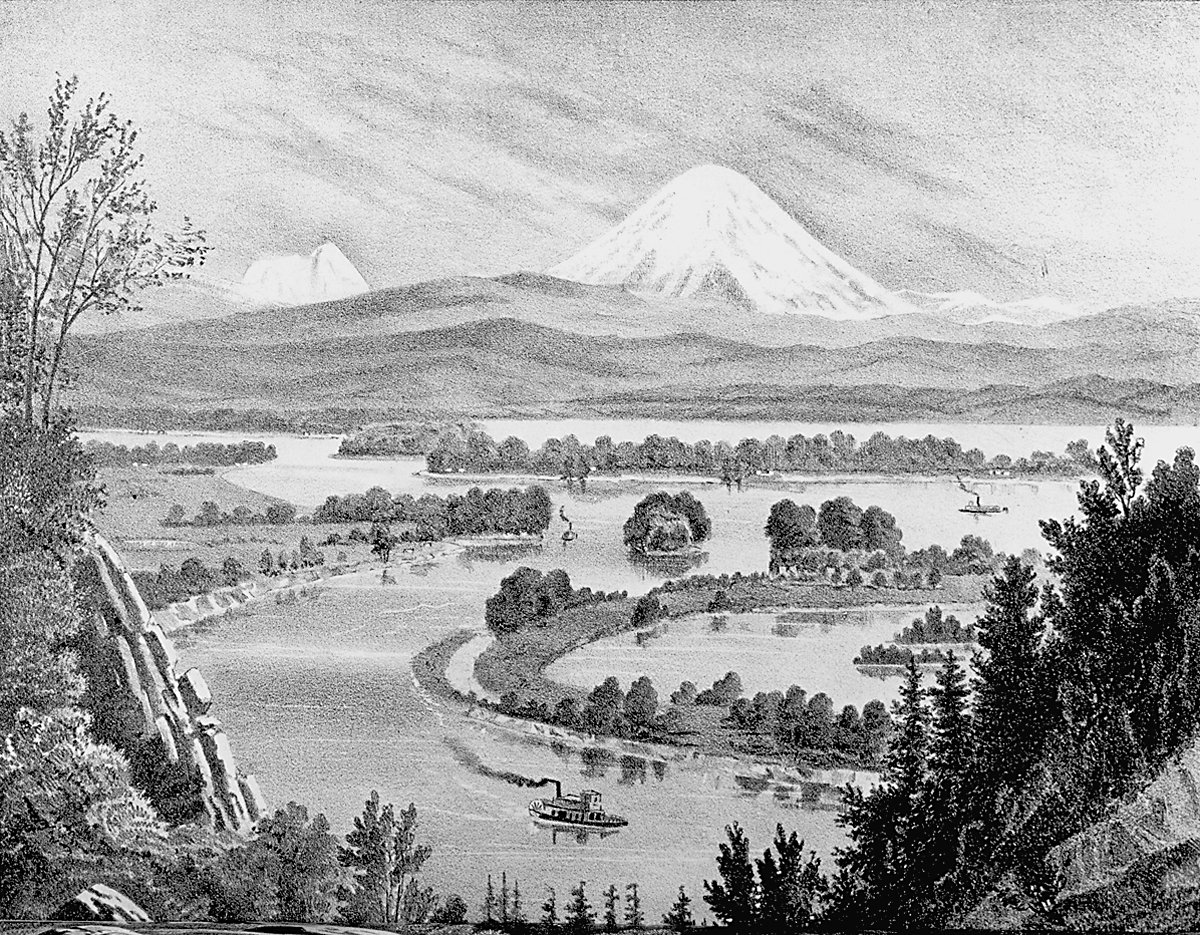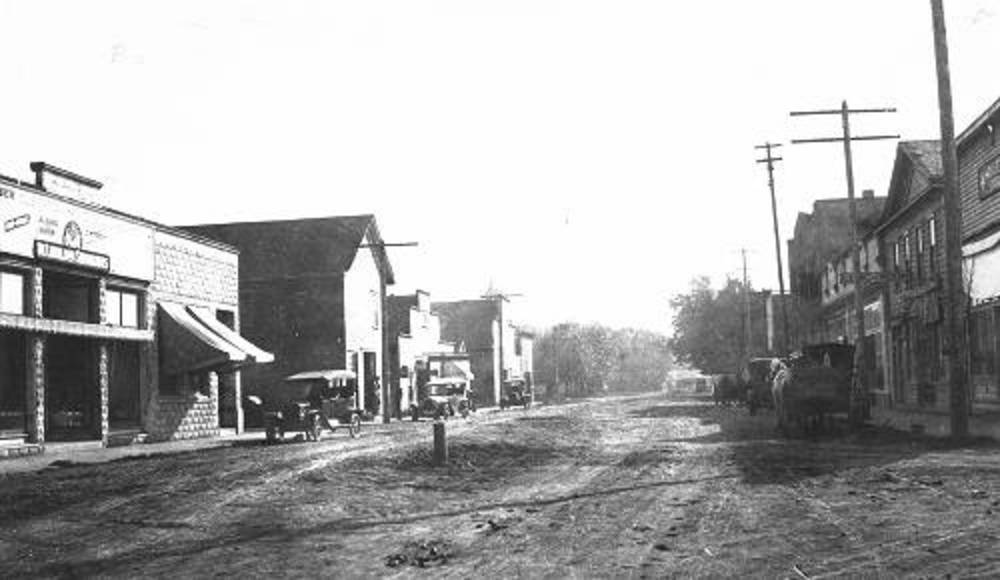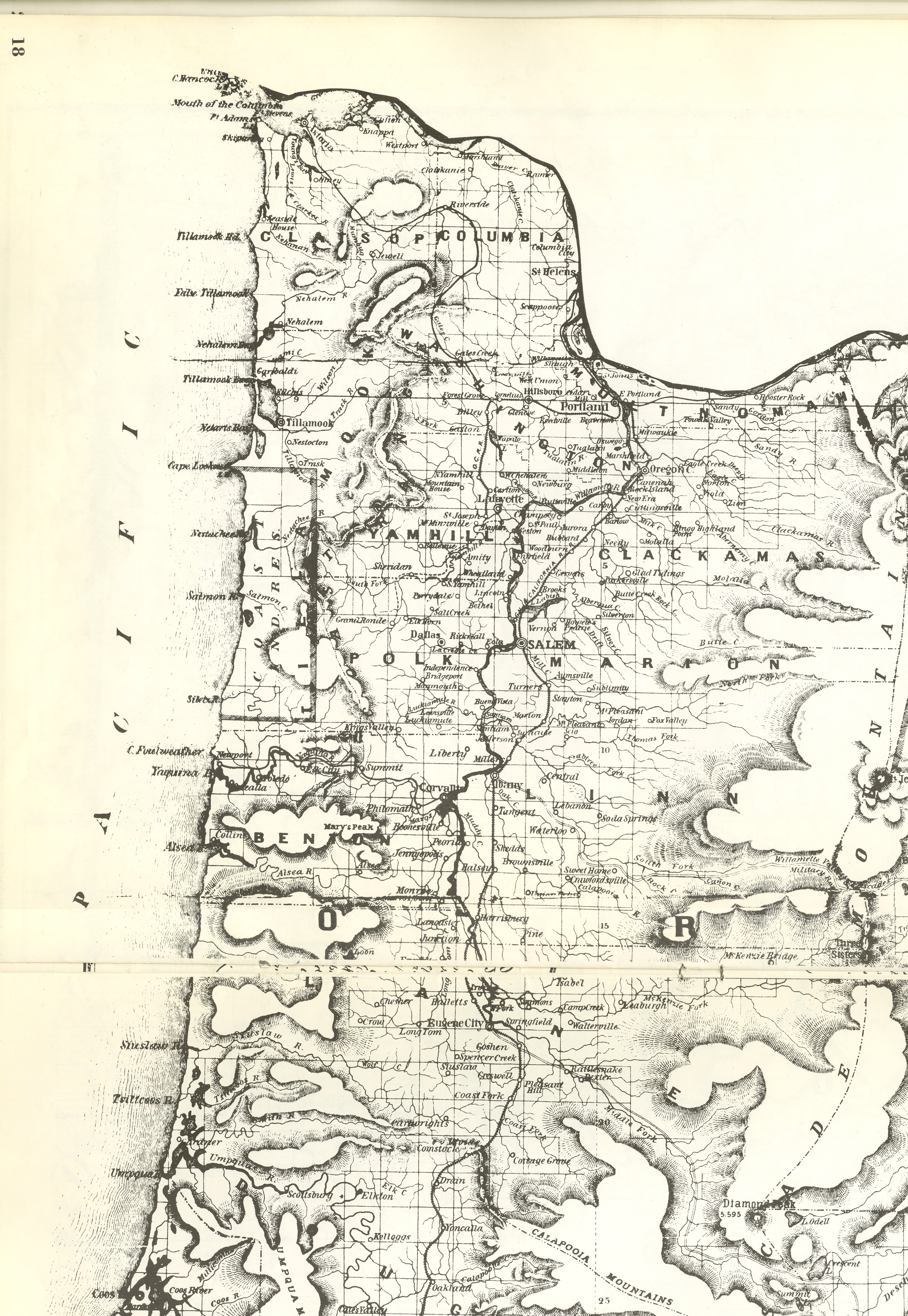Joseph Watt, who settled in Yamhill County in 1848, helped wake up the world to the area's fledgling commerce and manufacturing. He brought the first large flock of sheep to the Willamette Valley and hauled the first carding machine across the plains from Missouri to Oregon. In 1857, he established Willamette Woolen Manufacturing Company in Salem, the first woolen factory on the Pacific Coast.
Born in Ohio, the son of John and Mary Watt, Joseph Watt attended common schools there and at age twenty moved to Missouri, where he worked for two years as a carpenter. He signed on with a party of immigrants to Oregon, earning his way by helping with the stock. En route, as times became harder for the travelers, Watt was left without job, horse, or money. He left the wagon train in eastern Oregon and walked to The Dalles, hoping to find a job with another party. He reportedly arrived with shoe soles worn out and feet bleeding, only to discover that all the immigrants’ rafts were loaded. Perhaps to keep up his spirits, he began whistling "Oh! Susanna." A woman heard Watt whistling and persuaded her husband to let him come on their raft so they could enjoy his music.
At Oregon City, Watt worked as a carpenter. After accumulating a stake of land, he returned to Ohio to plan a second trip to Oregon. This time he brought his parents, seven sisters, and 435 American merino sheep. Watt's success in bringing the first sizable flock of sheep across the plains, the story goes, was due in large measure to a big ram named Pontiac. At every ford, Pontiac carefully chose safest crossing for his flock. Although 25 drowned in the last Snake River crossing, of the 435 who started, 330 survived the 2,000-mile trek. At the ceremonial opening of the woolen millin 1857, Watt's mother and sisters walked behind the governor and other state officials in the grand march as the orchestra played "Oh! Susanna."
By 1862, Oregon had a surplus of wool, and Watt shipped 100,000 pounds to New England markets. In 1868, he sent the first cargo of Oregon wool to a foreign port, helping to open markets for Oregon woolgrowers.
The town of Amity, named by Watt's brother Ahio, was built in part on homestead land owned by John Watt, Joseph’s father. In 1865, Joseph Watt, who at one time owned 3,640 acres of land, platted an area that was added to the town. Foreseeing the need for fruit in the area, he planted 5,000 Bartlett pear trees in Yamhill County. Watt was also the first to ship wheat from Oregon to New York and the Liverpool market in 1868.
In 1860, Joseph Watt married Levina A. Lyon, the daughter of Lemuel Lyon, consul to Japan in the administration of President Ulysses S. Grant. The couple had five children. In 1875, Watt moved to Forest Grove and lived for a time in Salem, but he then returned to his farm in Yamhill County, where he lived until his death in 1890. Watt's name is included on the frieze of the House Chamber at the Oregon capitol as one of 158 individuals who changed the state.
-
Willamette R., sketch of, by Rockwell, 1883, OrHi 76413.
Cleveland Rockwell's sketch "Mouth of the Willamette" for West Shore magazine, Oct. 1883. Oreg. Hist. Soc. Research Libr., OrHi 76413
Related Entries
-
![Amity]()
Amity
Amity is situated in southern Yamhill County along Salt Creek near its …
-
![Willamette Valley]()
Willamette Valley
The Willamette Valley, bounded on the west by the Coast Range and on th…
Related Historical Records
Map This on the Oregon History WayFinder
The Oregon History Wayfinder is an interactive map that identifies significant places, people, and events in Oregon history.
Further Reading
Case, Robert Ormond. The Empire Builders. Garden City, NY: Doubleday, 1947.
Lang, H. O., ed. History of the Willamette Valley. Portland: Himes & Lang, 1885.



